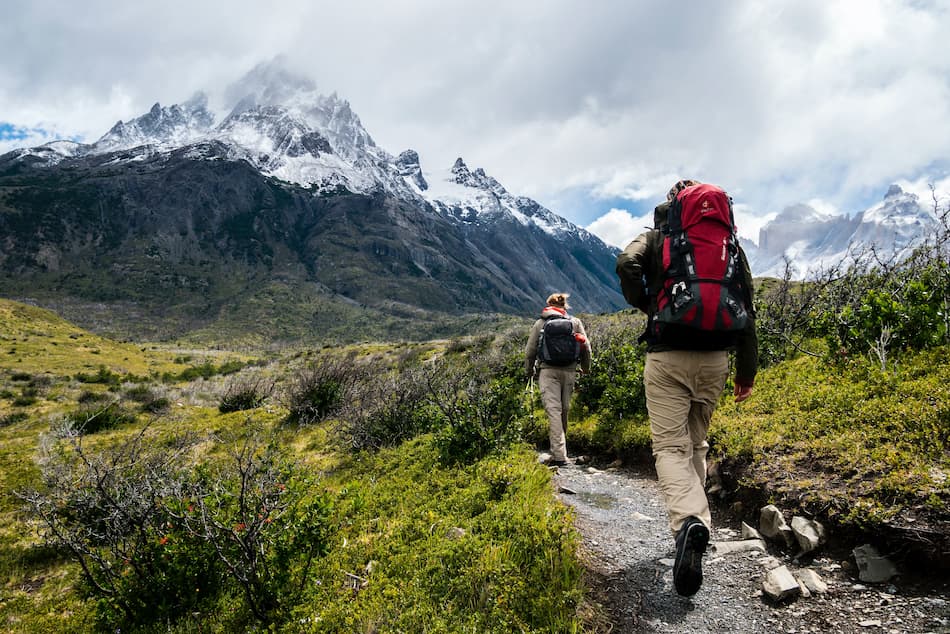
What Is Altitude Sickness?
Have you ever climbed to a higher elevation and suddenly felt dizzy, tired, or nauseous? You’re not alone - that uncomfortable feeling might be altitude sickness.
Also known as acute mountain sickness (AMS), altitude sickness happens when your body doesn’t have enough time to adjust to changes in elevation - especially when you ascend too quickly. It’s more common than you think, especially for hikers, skiers, travelers, and adventurers heading to higher altitudes.
Essential Takeaways:
- Altitude sickness happens when the body can’t adjust to rapid elevation changes, leading to symptoms like headaches, nausea, and fatigue.
- Prevention is key: ascend gradually, avoid intense activity early on, and stay hydrated with electrolytes—not just water.
- Buoy’s sugar-free electrolyte drops help maintain hydration and support faster acclimatization at high altitudes.
Let’s break down what causes it, how to spot the symptoms, and most importantly - how you can prevent it (hint: it starts with smart hydration).
- Common Symptoms of Altitude Sickness
- How to Prevent Altitude Sickness
- Remedies for Altitude Sickness
- Buoy’s Role in High-Altitude Hydration
- When to See a Doctor for Altitude Sickness
- Final Thoughts: Stay Ahead of Altitude Sickness
Common Symptoms of Altitude Sickness
Altitude sickness symptoms typically kick in at elevations above 8,000 feet (about 2,400 meters), but sensitivity varies from person to person. You might experience:
-
Headaches
-
Dizziness or lightheadedness
-
Shortness of breath
-
Nausea or vomiting
-
Fatigue
-
Difficulty sleeping
-
Loss of appetite
At higher elevations, oxygen levels drop, which makes your body work harder to deliver oxygen to your muscles and brain. If your body doesn’t adjust in time, these symptoms can appear quickly and unexpectedly.
It’s easy to mistake altitude sickness for dehydration or exhaustion - which is why awareness and early prevention are key.
How to Prevent Altitude Sickness
Here’s the good news: altitude sickness is very preventable. If you’re planning a high-altitude adventure - whether it’s a hiking trip, mountain retreat, or ski weekend - here’s what to do before and during your trip:
1. Acclimate Gradually
The #1 rule: don’t rush it. Give your body time to adjust by ascending slowly. If possible, spend a day or two at mid-altitudes before reaching higher elevations. It’s one of the most effective ways to reduce your risk.
2. Hydrate the Right Way
Hydration is non-negotiable - but not all hydration is equal. Drinking tons of plain water without replacing electrolytes can throw your body off balance and actually worsen symptoms.
That’s where Buoy’s unflavored electrolyte drops come in. Just a squeeze into any drink helps replenish lost minerals like sodium, potassium, and chloride - all essential for proper cellular hydration and fluid balance.
Buoy hydration drops are free from sugar, artificial sweeteners, and fillers - which is important because sugar and sweeteners can act as diuretics, making dehydration worse at elevation.
3. Take It Easy
Once you arrive at a higher elevation, resist the urge to immediately go for a run or hike. Give your body time to settle in. Light walking is fine, but avoid strenuous activity for the first 24 hours.
Remedies for Altitude Sickness
If symptoms do kick in, don’t panic - most cases are mild and improve within 24–48 hours. Here are some steps you can take:
Rest
Stop ascending and rest where you are. Give your body time to catch up to the altitude.
Hydrate with Electrolytes
Start sipping fluids with electrolytes. Again, water alone isn’t enough - you need minerals to help your body retain fluids and rebalance faster. Buoy drops make this easy without adding sugar, fake flavors, or sweeteners that may worsen dehydration.
Try Medication (If Needed)
Some people use medications to help with acclimatization. However, side effects are common with medicines, and hydration often works just as well for most mild cases.
Buoy’s Role in High-Altitude Hydration
 Our clinically proven electrolyte formula hydrates 64% better than water alone and outperforms leading competitors. That’s based on a placebo-controlled clinical trial from the University of Pittsburgh - so it’s not just marketing fluff.
Our clinically proven electrolyte formula hydrates 64% better than water alone and outperforms leading competitors. That’s based on a placebo-controlled clinical trial from the University of Pittsburgh - so it’s not just marketing fluff.
Whether you're heading to the mountains for fun or travel, Buoy offers:
-
87+ ionic trace minerals
-
High bioavailability for fast absorption
-
No sugar, sweeteners, or artificial ingredients
-
Portable, squeezy bottles that fit in your pocket
With Buoy, you don’t need to pack sugary sports drinks or weird-tasting powders. You just squeeze a little into your favorite drink - tea, water, even coffee - and you’re good to go.
When to See a Doctor for Altitude Sickness
While most cases of altitude sickness are mild and manageable, there are times when you should reach out to a healthcare provider:
You Have Underlying Conditions
Conditions like asthma, heart disease, or anemia can make symptoms more severe. Always consult your doctor before a high-altitude trip if you have a health condition.
Symptoms Get Worse or Persist
If your symptoms don’t improve within 24 hours of returning to a lower elevation - or if they worsen - seek medical attention. Severe cases can lead to high-altitude pulmonary edema (HAPE) or high-altitude cerebral edema (HACE), which are medical emergencies.
Final Thoughts: Stay Ahead of Altitude Sickness
If you’re climbing, hiking, traveling, or just venturing into higher elevations, the key to feeling your best is simple: go slow, stay hydrated, and listen to your body.
With Buoy’s science-backed electrolyte drops, you can turn any drink into a hydration powerhouse - giving your body the tools it needs to handle the altitude.





